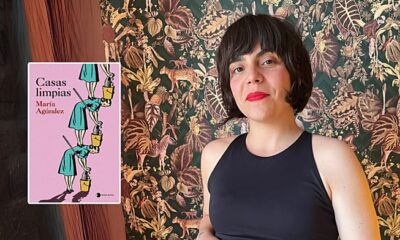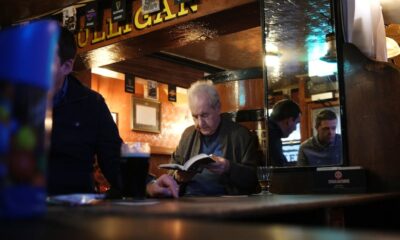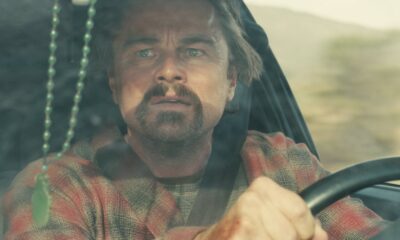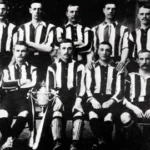A huge number get my writing. Many don’t, but if you appealed to everyone you would be a mere bestselling author
Culture
Donald Clarke: We all have more Alan Partridge in us than we would care to admit
Read more on post.
“The truth is that Donald Trump is far less sophisticated than Alan Partridge,” Steve Coogan told me in 2020. “That’s a plain fact.”
Read that sentence carefully. There may be a clue as to how the East Anglian broadcaster has survived and prospered.
Next week we will see, depending on how you count these things, the 10th or 11th iteration of Alan. He was first heard, in 1991, as a sports reporter on BBC Radio 4’s news spoof On the Hour. Then on the same station’s faux chatshow Knowing Me Knowing You. Then The Day Today, essentially a telly transfer of On the Hour. And on and on, through sitcoms, movies, books and internet shorts.
Next week, still played by Coogan, he appears in a mock documentary series called How Are You? It’s Alan (Partridge). The trailer leans towards the fashionable, and often obscurely defined, celebrity obsession with “mental health”.
Spinal Tap, celebrating 40 years of pastiche in the recent Spinal Tap II: The End Continues, have been around longer, but that band haven’t remained at the front of the conversation.
When I spoke to Coogan a week or two before the pandemic moved in, he was patiently fielding questions about a newly unavoidable Partridge Doppelgänger. Just a year earlier, Martin Brennan, brought on as novelty lookalike on our hero’s early-evening magazine show This Time With Alan Partridge (an obvious nod to the BBC’s The One Show), had humiliated the fictional host – and delighted the actual Irish nation – with a robust rendition of Come Out, Ye Black and Tans.
It was kind of a miracle. I have yet to find a single viewer in Ireland who was offended by the robust depiction of an unpretentious Irish chancer. As the son of a Co Mayo woman, Coogan had both added insight and added responsibility.
“My mum was relieved that people thought it was great,” he told me. “And also there was a joke there: I wonder if we can get an Irish rebel song on prime-time television.”
I’m Alan Partridge was among the most acclaimed sitcoms of the millennial years. A decade later the hilarious Mid Morning Matters, initially launched on YouTube, made ingenious use of the newer formats. I, Partridge: We Need to Talk About Alan, published in 2011, was a spoof biography for the ages.
Quite a list. No other comedy character has managed a career like this. Barry Humphries’ peerless Dame Edna Everage comes close. In action for nearly 70 years, she certainly beats Alan for longevity. But the Melbourne superstar didn’t wax so much with the times. She didn’t flit from one corner of prime time to the other. She was largely the same person for about four decades of that span. Partridge evolves and devolves.
“He has definitely changed. We don’t apologise for that,” Coogan told me in 2013. “He is a little Englander. But over the years he has become aware of the new consensus about things he would have thought fringe issues.”
That change is partly to do with an expansion of personality. The Partridge who appeared in On the Hour was a fairly one-dimensional figure. He was essentially a neat summation of all the negative cliches associated with sports reporters.
The listener might reasonably have assumed he had as much chance of surviving into the 21st century as Peter O’Hanraha-hanrahan, Patrick Marber’s idiotic economics reporter, or Barbara Wintergreen, Rebecca Front’s idiotic American reporter. But the writers thought differently.
“We always knew he had legs,” Armando Iannucci, one of the creators of On the Hour, said in 2017. “We subconsciously decided early on not to overdo him. We bring him back every few years or so. The world will have changed. He will have changed a bit.”
Another crucial decision was to periodically invite empathy for Alan. He is a terrible person: arrogant, small-minded, philistine, petty. Like so many protagonists of British sitcoms – David Brent, Basil Fawlty, Rupert Rigsby, Captain Mainwaring – he can’t understand why he is limited to only the tiny amount of compromised power that has come his way.
But, every now and then, each of those men gets his moment of genuine pathos. We all have more Alan in us than we would like to admit.
As the years have passed Coogan has repeatedly stood up for his creation. Many thought Brexit would be Alan’s great moment. But his chief creator was not so sure. “It’s too obvious,” he said in 2020. “There is no comedy in someone being unreconstructed and unsophisticated.”
Alan Partridge returns as a unique carnival mirror for changing times. He was wrong about most things. But he was right about a few others. Who now laughs at a man for loving Abba quite so much?
How Are You? It’s Alan (Partridge) begins on BBC One on Friday, October 3rd, at 9.30pm
Culture
Clean Houses’: What if having a maid clashed with being a good feminist?
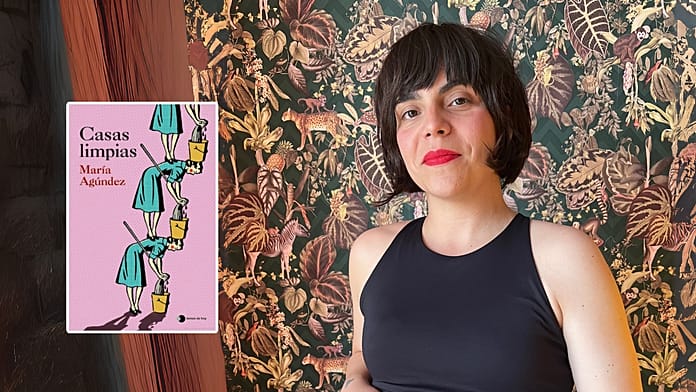
Read more on post.

ADVERTISEMENT
Sol, the protagonist of ‘Casas limpias’ (Clean Houses), published by Temas de Hoy, is a young, progressive woman who would like to live as much as possible in accordance with current feminist ideas. However, when she’s fired from her job as an artist’s assistant and discovers that she is pregnant, she hires two Latin American women to help around the house to do what her boyfriend, who works 12 hours a day, cannot.
This decision makes Sol feel ashamed and she starts to worry about what people will say, to the point of hiding so that her neighbour, from whose window hangs a flag with a purple fist, doesn’t find out.
This is how María Agúndez begins her second novel, a portrait elaborated with sharpness and a dose of humour in which the reader is uncomfortable to see herself reflected because, as the author told Euronews: “Hiring someone to clean the house sometimes means becoming a kind of little boss, but without giving the other person any kind of condition and, above all, we start from the assumption that we are hiring someone for not wanting to dedicate your free time to cleaning your own filth”.
It is impossible not to remember the film ‘The Help’, with its portrayal of these two parallel worlds that are so unjustly different from each other; or ‘Manual for Cleaning Women’, the stories by Lucia Berlin, published ten years after the author’s death, which reflect the everyday life of these women who are pushed into precarious jobs to support their families, or themselves.
Racism, inequality and prejudice
Although ‘The Help’ is set in the 1960s and Berlin also drew on her experiences during the 1940s and 1950s, María Agúndez takes the legacy of all this and puts it in a modern perspective in which the root problems – racism, inequality and prejudice – are still there, but in a different guise.
Caring for others, cleaning; these arestill chiefly viewed as women’s domains, and although breaking with this destiny would be the ideal way to comply with the much repeated term of empowerment, this is still not a possibility to be contemplated for all of them.
“We criticise a lot the ways we each have of executing our private lives and our feminism and I don’t think everyone can afford it in the same way”, explains María Agúndez regarding the social pressures that come from various ideological spheres. “It is as if only professional success can be a value nowadays, and even if a woman also aspires to look after her baby, it seems that it is frowned upon and that she has fallen into the care trap”, she adds.
Lack of social recognition
The problem, on the other hand, lies in theprecariousness of the world of work and “the incorporation of women into the workplace is perfect, but it becomes very complicated when there is a family nucleus because, who is going to give up? The grandparents, they also have the right to have their life”, declares Agúndez.
And when it comes to job success, not all jobs are valid, and this is very cleverly reflected in ‘Clean Houses’ when the protagonist discovers that she is obsessed with cleaning and wants to work as a maid, but is criticised by her boyfriend and her parents because she can “aspire to something more”. “Is it cooler for your mother, for example, to be a cultural worker, even if she has terrible conditions, rather than a cleaner? It’s a question of social recognition, that’s clear”, confesses the author.
Also very present in the narrative is the gaze of a wealthy, conservative social sector, for whom hiring a domestic workernot only does not raise any self doubt, or humility but instead brings with it condescending phrases like “she’s like one of the family, or if we even take her on holiday”.
The kind of person who is afraid that the cleaner will steal, or who purposely leaves a giant ball of lint in a specific place in the house to check if it is thoroughly cleaned, as the novel shows, “are the ones who perpetuate this system the most because they don’t believe there is a problem or have a critical eye”, says Agúndez.
The contradictions of being a woman
Despite the profound reflections in the background and the serious tone of this article, no one should be fooled: ‘Casas limpias’, published in five languages other than Spanish, is neither a political novel nor an academic essay.
Rather, it is a look constructed from “what I can see in my surroundings, the conversations I have with other mothers in the park”, in the words of the author, who maintains the witty style of Agúndez’s literary debut, ‘Piscinas que no cubren’ (Uncovered Swimming Pools).
This work is like a sociological study in a literary key; a lens that focuses on the contradictions of being a woman because, as María Agúndez says: “It is as if men today have not yet reached the level of masculinity that give them permission to talk about everything and because they do not experience fatherhood in the same way, I wouldn’t dare to say why.”
Culture
John Banville: ‘You cannot censor me. They would try it now with all this wokeist nonsense’
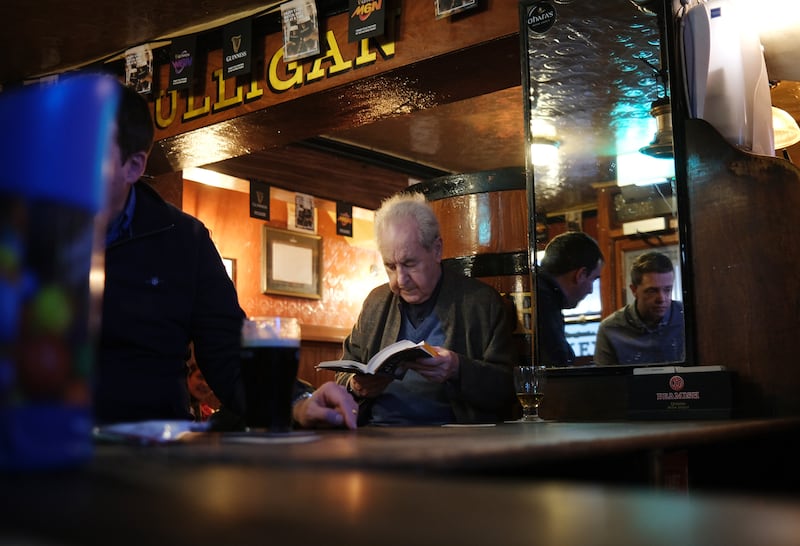
Read more on post.
Like a gondolier on the Canale Grande, John Banville seems right at home in Venice, the setting for his new novel, although, like his odious protagonist Evelyn Dolman, he has a love-hate relationship with La Serenissima, “that pestilential city squatting in the mudflats of its befouled lagoon”.
“I hate the place,” says the author, ever the provocateur. He visits every year because he is on the jury of the Nonino literary prize, in Friuli, and drops by to renew hostilities. “It smells, it’s crawled over by tourists like an anthill and Venetians are impossibly avaricious. I was walking down one of those alleyways with a friend at twilight, and a rat ran across and sank down a drain but left its big, pink, naked tail out. We both said: Venice!
“Of course, it’s charming. I understand the beauty and uniqueness of the place. It’s an extraordinary city, like nowhere else in the world, and I’ve had some wonderful times there, but I find it a very sinister place.” He had an eerie experience in a Venetian club only to discover that Giordano Bruno, a philosopher burned at the stake in Rome for heresy, who features in his fiction, had sheltered there for months.
“Venice has this darkness that the Dublin of my imagination from the 1950s had,” which inspired the Quirke & Stafford series under his pen name Benjamin Black. “I do love it. I have a great fondness for the grotesque. I love grotesque conjunctions. I love talking to people who hate me and being really nice to them.”
Deception and mask-wearing are at the dark heart of Venetian Vespers – “Oscar Wilde said, give a man a mask and he’ll tell you the truth” – which is published next week, just over two months ahead of Banville’s 80th birthday, but it feels so wickedly entertaining that the author must have had fun writing it, too. “I wouldn’t keep doing it if there weren’t rewards,” he says. “It’s hard work, but anything easy is not worth doing. I enjoyed doing this book, though.”
It is 1899, and Dolman, an arrogant English hack writer, is honeymooning with his bride, Laura Rensselaer, estranged daughter of an American millionaire. Exhausted by travel, feverish, an impotently mute monoglot abroad, he falls in with twins he meets on his first night in a bar, the louche Freddie, who claims to have been at school with him, and the enchanting Cesca. After a shocking incident, his world turns upside-down.
It’s a ripping yarn filled with dark desire, melodrama and suspense, blackguards and women wronged, suspicious deaths and chance encounters, scheming and mystery, an arch entertainment elevated by a master stylist’s elegant prose – gondolas are described as sinister craft, “rearing and plunging their haughty, gilded prows, like so many glossy-flanked racehorses crowding at the starting-rope”.
Venetian Vespers takes its name from the piece of music by Monteverdi that is playing in St Mark’s when Dolman is accosted there by a prostitute. “It’s a beautiful piece of music, but that’s a very eerie place. It doesn’t look like anything in the western world. It’s a Byzantine cathedral. The floors are uneven. I don’t see it as Christian, I see it as a pagan temple. It scares me.” Was he ever accosted? “In St Mark’s Basilica? Are you joking? Happy thought.”
The book has an erotic charge, a sense of obsession. “I remember obsession, years ago. I have always wanted to write a ghost story. I have always wanted to write an erotic novel, and in this I almost get there. It’s a bit of both.
“I wanted to write an erotic novel because I think Story of O, by Pauline Réage, is a masterly book. Certainly when you read it a second time you realise it’s not about sex at all, it’s about power. O, the woman who is being abused, is the one with power. That fascinated me. And this is in a way a book about power. Dolman thinks he has power, but he is at the mercy of these people.”
This fascination is present too in Banville’s Time Pieces: A Dublin Memoir, in which he recalls the girls of his youth and the prostitutes who plied their trade near his home – “oh, well-named Mount Street”. Likewise, his soft spot for a canal, Dublin’s though, not Venice’s – “that stretch of placid water, rustling reeds and dark-umber towpath from Baggot Street down to Lower Mount Street is the loveliest aquascape I know of, trumping even that other Canale Grande, the one with the warbling gondoliers.”
[ John Banville: ‘I expected to be dead, or at least gaga, by now’Opens in new window ]
Venice, though, is a city rich in cultural resonances. Vespers “is very much influenced by Thomas Mann’s Death in Venice and Don’t Look Now, which I saw again recently. It’s a masterpiece. [Daphne du Maurier’s] story is not terribly good, but Nicholas Roeg’s film is wonderful, the way he uses colour.” When he first saw it, the film was significantly shorter, courtesy of the Irish censor, but Banville thought it was better without the sex scenes. “I never believe actors doing sex, and Julie Christie looks like a boy.”
The epigraph is from The Turn of the Screw, by Henry James, whose The Aspern Papers is also set in Venice. Is this novel an homage?
“Oh, I never do homages to anyone except myself,” he says with a chuckle. Surely Mrs Osmond, though, is his bow to Henry James. He concedes the point. “I thought doing a sequel to The Portrait of a Lady would be like a jackal feeding on the body of a lion, but then I thought, what the hell. I must have thought I needed a new direction.”
He wrote it while living on campus in Chicago. “There wasn’t even a bar. I did nothing but write. It was like an out-of-body experience. I would lean back and look at my hand moving. I felt I could go for a cup of coffee and come back and have another page written. I would use words that I didn’t know the meaning of” – a common sensation for his many readers, I suspect – “the ebullient cauldron. I didn’t know ebullient meant boiling, until I looked it up. Where did that come from?”
Perhaps from another language, I suggest, but he admits only to “a bit of German, some French and a smattering of English”. His versions of Kleist plays, he says, were really reworkings of existing translations. “The glory of English is that it is such an impure, ambiguous language. One of my characters is called Cleave, which can mean its complete opposite. I love that.”
Banville’s fiction is peppered with words, such as contemnor, which the humble reader must look up. What does it mean, I ask. “I can’t remember,” he says. However, “I found a wonderful word the other day, a new one on me, invaginate. It doesn’t mean what you think it means. It simply means to form a sheath.” Where did he find it, dare I ask? “In the dictionary.” He leafs through them? “Of course. The dictionary is one of the great inventions of humankind.”
Dolman declares, “I set out to be a lord of language who in time would be placed among the immortals.” Is he channelling Banville? “Well yes, but then there is a second half of it, too, where he becomes a hack.” Is that him too? “Of course, part of me is. I love writing reviews. When you’ve written it, it’s gone, whereas a book is like a reserved sin, one you have to go to a bishop to get absolution for.
“Perfection is an idea. Humans are imperfect, so every work of art is a failure. [John] McGahern used to say: there’s verse and there’s prose and then there’s poetry, and poetry can happen in either and it happens more often in prose.”
His books are often spin-offs from the original idea, he has said, satellites sent into orbit while the mother ship is jettisoned.
“You never write the book that you think you’ll write. Inevitably it changes along the way,” he says. “When I was in my 20s it would take me three to five years to write a book. By the time I finished it I was a different person to the one who started it, and even still to some extent that is true, although I am now an ancient of days.
“Doctor Copernicus [about the Polish scientist] started out as a novel about the Norman invasion of Ireland. The Newton Letter came closest to achieving what I set out to achieve, but it’s only about 80 pages. All novels should be about 80 pages. Why people expect them to be about 240 pages I don’t know.” Venetian Vespers is 316 pages.
Banville started out writing short stories but wouldn’t be able to write one now.
“I need the breadth of a novel. It starts out like a doddle, but then six months later I am wading through mud up to my armpits, ready to cut my throat. I have to finish this damn thing and it can take years, and when I finish it I think it’s just another damn book. Iris Murdoch was once asked why she wrote so many books. She said, I always hope the next one will exonerate me for the ones that went before. That’s how I feel as well.”
I wonder if the stakes were lower with this one, akin to one of what Graham Greene called his entertainments. “His novels are far funnier than his entertainments, unintentionally so,” says Banville waspishly. “He treated me very badly with that GPA prize back in 1989. He tried to take it away from me. Tony Ryan very generously gave two prizes.” Banville created an unflattering caricature based on Greene in The Untouchable, from 1997. “I had my revenge.” Was he still alive? “No, he was dead unfortunately.”
[ John Banville: ‘I’m as baffled by the world now as I was when I was five’Opens in new window ]
As well as signalling the Jamesian connection to Venice, the epigraph captures his protagonist Evelyn Dolman’s predicament. “He doesn’t know what he is doing, he thinks he knows everything, but he’s a complete idiot.” An innocent abroad, except he is far from innocent. “He is a despicable little twerp who deserves everything he gets. He’s called Dolman” – doll man – “you know, and he has an androgynous name.
“A book-editor friend likened Dolman to Victor Maskell in The Untouchable and said, ‘You’re really good at conjuring horrible men.’ I said, ‘Why wouldn’t I be?’” The implication being that he is horrible too? “I think all human beings are horrible,” says Banville.
Dolman is a dupe but also behaves abominably. Did Banville feel he had to tread carefully writing certain scenes? “If I were to tread carefully I would be lying,” he replies. “Granta published an extract from The Untouchable. In the first paragraph Victor Maskell is almost run down by a bus, which he says was being ‘driven by a grinning blackamoor’. The proofs had been changed. I said, the point is you cannot censor me. They would try it now with all this wokeist nonsense. Thank God it’s coming to an end.
“In The Untouchable there is anti-Semitism throughout. I’m a philo-Semite. I still defend the Israelis. I was shaped by the death camps. My view of the savagery of human beings was shaped by my childhood memories of what was coming out of Germany. I once tripped on blue twine that was used to bind bundles of The Irish Times. Six people helped me up. I remember thinking in different circumstances these same people would be pushing me into a cattle truck.
“I think all right-thinking people have a dark view of human beings. We are not a very nice species. All this stuff about Gaza, which is terrible, of course, but nobody gave a damn when Assad was killing 350,000 of his own people. No one cared about Rwanda. It’s nascent anti-Semitism. Someone sent me a statement. I wrote back saying I will not sign this, there is no mention of Hamas. Of course, they gave Netanyahu and his horrible gang the excuse to commit atrocities. But they started it.”
There are two one-sided takes to every story. The conflict did not start on October 7th, 2023, I say, but the author diverts to an anecdote about the Jewish literary editor Louis Marcus. “When he was a little boy in Cork in 1945 or 1946, there was a knock at the door one Easter. A huge priest was standing there who said, ‘I’m here for the dues.’”
Banville spent many years as a subeditor on the Irish Press and The Irish Times. This had no bearing on his writing, he says, except perhaps a certain economy of language. Working night shifts did mean, however, that he wrote in the morning and afternoon. “I’ve always been a creature of the night. Tim Pat Coogan” – a former editor of the Press – “hated subs. He defined us as ‘people who change other people’s words and go home in the dark’. I loved subbing.”
He also loved being literary editor of The Irish Times. “I loved that job; 10 marvellous years. My iron rule was, when you send out a book for review, when the review comes in, you have to accept it. I’m sure there were writers who were annoyed [by a bad review]. But literature, art, book reviewing, these are areas of truth.
“In a world that has given up the notion of truth having any value, this is going to be one area that will help us through. You can’t make untruthful art. If you do it is not art, it’s kitsch. An artist may be a total liar in life, like myself, but when you sit down to write, I can’t lie.
“When I was doing Copernicus, halfway through I realised historians will shout at me about this. A friend said, ‘Don’t be mesmerised by fact. Fact is not truth. What you are doing is truth.’”
[ John Banville: ‘I have not been a good father. No writer is’Opens in new window ]
He was desperate to win the Booker Prize in 1989, when he was shortlisted for The Book of Evidence, not for the validation but because if he had won he could have left journalism to write full time.
“I didn’t realise the Booker only lasts for a year and then you’re a nobody again. If you were to regard the prize as some judgment of your work, you’d be in trouble. As Roddy Doyle said when he won, if it had been five different judges someone else would have won – and it’s true: it’s a lottery. I came across a wonderful saying by Philip Larkin the other day: ‘I don’t think I write particularly well, just better than everyone else.’”
He chuckles. Would he go so far? “Of course. God, I’ll get into such trouble for this. But I have lots of friends with a sense of humour. Everything I write is second- or third-rate, by my standards, but my standards are impossibly high.”
He doesn’t get edited, he says, then corrects himself. “The crime books get edited, because I fall asleep now and then. One editor said to me, ‘Do you realise you’ve actually demoted Strafford from one book to the next?’”
He recalls finishing The Lock-Up at the Tyrone Guthrie Centre, the artists’ retreat in Annaghmakerrig, in Co Monaghan, on a Friday night but felt it was a bit banal. He suddenly realised another character could be the killer, so on Saturday morning he wrote another 3,000 words, a new ending. “That’s the essence of that kind of writing: it has to be spontaneous.”
He was in a self-catering chalet and so avoided the evening meals with other writers. Hell is other writers, I suggest, paraphrasing Sartre, and he laughs but later lists several writer friends.
“McGahern told me, the only reason we get on is we are so unalike. He was wonderful company. In the old days my wife and I used to visit him in the house above the lake. We used to drink so much, laugh so much. He was one of the best storytellers.”

Is The Book of Evidence his best work? “I can’t be asked to judge my own work, because I bring all the baggage of the years of writing, all the mistakes, all the failures, compromises, so I can’t read them with an innocent eye.”
I quote the wonderful lapidary line from his Booker Prize-winning The Sea, from 2005, which seems to capture a recurring theme in his work: “The past beats inside me like a second heart.” Banville says, “It’s strange. Everyone remembers that line. I didn’t think it was special, but everyone remembers it. There are lots of others.
“In The Infinities there is a line where the god Hermes speaks, complaining that the gods are being coerced by humans: ‘Fine gods we are that we must muster to a mortal must.’ When I wrote it I thought, My poor translators.
“There are few things more pleasurable than writing a well-made sentence. That’s a great privilege. Our greatest invention as a species is the sentence. This is what made us civilised. And I’ve spent my life working with this marvellous invention. What a privileged life. I know I write beautiful sentences, but they are to other people, not to me. It would be fatal if I loved my own work.”
[ John Banville: It ‘makes me physically ill’ to read my own workOpens in new window ]
Did he take satisfaction in seeing Dolman’s arrogance, typical of the Englishman abroad, crushed? “No, I am one of those rare creatures: I have no trace of nationalism. I like Ireland because of the climate and the sense of humour. We are so adept at mocking ourselves. Even at our most serious we don’t take ourselves seriously. I love that.”
He is disappointed that some don’t recognise the humour in his work. “The good readers do.” The connoisseurs? “No, I don’t want connoisseurs. My wife was in M&S, and a woman at the checkout saw the credit card and asked if she was related to me. ‘Tell him The Sea is the most beautiful thing I’ve ever read.’
“That to me is worth 500 rave reviews. They are the people I write for, not fellow writers, academics, critics or book reviewers. I write for the woman at the checkout in M&S. A huge number get it. Many don’t, but if you appealed to everyone you would be a mere bestselling author.”
Unlike Dolman, Banville appreciates classical music and seeks to emulate it in his prose. “It’s paramount. I’ve always had huge admiration for Nabokov’s prose, but I read an interview where he said he was tone deaf. I thought, That’s what it is: there is no music in his prose, it’s all pictorial, visual.
“I regard music as a kind of magic. It’s extraordinary that these little black marks on a white page turn into this storm of sound. I listen to music all the time: Bach, Beethoven, Benjamin Britten. I don’t like pop music. My partner, Patricia Quinn, plays the viol.”
He speaks his work aloud when he is revising. “I used to have this strange Oxbridge-accented voice I would hear myself reading a sentence in. I said to myself, Where did that come from? Copernicus is music from start to finish. At the end of it is written DC. It could be Doctor Copernicus, but I meant it as da capo: start again. People imagine when they have read a book, they have read the book. No, start again. You would never listen to a piece of music and think, Oh, I now know that.”
There is a sense of playfulness at times in Venetian Vespers, highlighting the artifice of storytelling. “Art is transcendent play,” Banville says. “I’m playing. At least three times a week I’ll look up from my desk and say, ‘I’m supposed to be a grown-up human being. What am I doing, telling these stories?’”
Like a play pen, I suggest. “I’ll steal that,” he says. “TS Eliot says inexperienced writers borrow, experienced writers steal. It’s stolen.”
He is halfway through another Quirke crime caper; his autobiography, Out of True, is progressing slowly. Will it be a tell-all or a tell-some? “It’s a novel,” he says, laughing. “I could never keep a diary. I have no interest in myself as a person to write about. I love my life, the people around me. It will be full of banalities. Life is banal; that is part of its glory.”
He used to write eight hours a day, but now, on the cusp of his ninth decade, he can’t do more than three. “The writing life requires physical strength. When I started, houses didn’t have central heating. Your legs would be frozen. But I write 24 hours a day, even when I am dreaming.”
A novel, he has said, is a vehicle to convey the weight and power of a dream. Venetian Vespers begins and ends with an image from Dolman’s dream that turns out to be a premonition.
Banville allies himself with Beckett and Kafka over Joyce. “I’m not a Joycean. I regard the world as a very strange place. I’ve been alienated since I reached the age of reason, I’ll die alienated, but there is a wonderful quote from the astronaut Jim Lovell. ‘People often say: I hope to go to heaven when I die. In reality, you go to heaven when you’re born.’
“Earth is beautiful. It’s terrible, too – but, my God, look at clouds. We ignore them only because we are used to them. I was on a flight to Oslo, flying above the fjords, but there were clouds above the plane reflected in the fjords. Pure magic.”
Venetian Vespers is published by Faber
Culture
Olivia Dean: ‘Why do I have to be in distress to make good music? Why can’t I just be happy?’
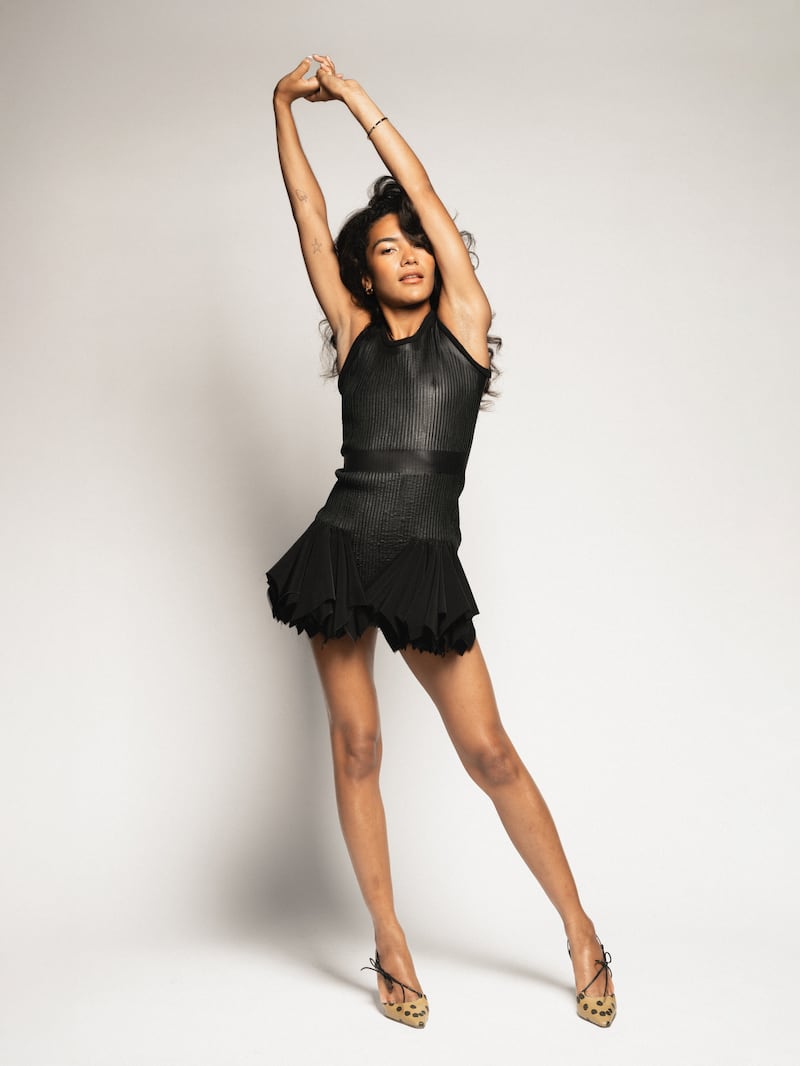
Read more on post.
Olivia Dean has mixed feelings about dating apps. “There’s lots of success stories. But what they do is inspire this culture of people being disposable,” the London soul singer says.
Apps encourage people to believe they have their pick of potential suitors, she believes. “There’s always a ‘next’. Which I guess maybe makes you less likely to invest in and work at love. And I do think that love is a practice, and something you can get good at, and that requires attention.”
The search for love in the digital hellscape of modern life is a topic that has occupied the thoughts of the 26-year-old as as her new single, Man I Need, streaks to the top of the charts, and as she prepares to release her brilliantly emotive second album, The Art of Loving.
Just like Dean, the LP wears its feelings on its sleeves: it’s a celebration of love in every sense: romantic, platonic, between friends, within families and even towards strangers with whom we share a common humanity.
It was not so long ago that the idea of an album about love would have seemed cringy with bells on, the musical version of one of those giant Valentine’s Day balloons with a teddy bear suspended in the middle. Yet, as expressed by Dean, the concept of love is not a slurpy indulgence but a call to arms.
There is, she believes, a lot of hate in the world: pick up your phone and it comes spewing out. Dean would like to think she’s pushing back gently against the narrative that we’re all bound for Hades in a handcart.
“It breaks my heart,” she says of the negativity that is part of the background noise of 21st-century living. “I’m trying to get love back into the conversation.”
Dean gives the impression of taking success in her stride. She has certainly had a lot to celebrate: topping the charts in Ireland and New Zealand (her first number one), a sell-out 2026 arena tour and a deserved Mercury nomination for her debut album, Messy, from 2023.
Yet, for all her achievements, her career has in some ways been a struggle uphill. Raised in north London, the child of an English father and a Jamaican-Guyanese mother, she learned early in her career that the record industry had rigid expectations of the sort of music a woman of colour should make.
She was following her own path, drawing on her love of soul and jazz but also of alternative rock and singer-songwriter-style confessional ballads. This caused confusion among music’s executive class. Why wasn’t she making R&B music? Did it ever occur to her that she should be making R&B music?
“Sometimes people listen to music with their eyeballs rather than their ears,” she says. “It was quite limiting. Also, I don’t make R&B music. I don’t know why that’s so hard to grasp. I don’t even think about genre at all any more. I don’t feel bound by it. I feel I could make anything I wanted to and you’d just have to get your head around it.”
Dean persevered – and two years ago became an overnight success half a decade in the making with the release of the fantastic Messy. It was among the favourites for the Mercury prize, which ultimately went to the London jazz outfit Ezra Collective. Just as significantly, it shifted serious numbers: peaking at number four in the UK album charts, it confirmed the arrival of a new voice in British music.
Success has obviously brought added pressure. Dean has already sold out that upcoming arena tour, and people will be watching to see how the new album performs – and whether there is an audience for an LP about a topic as old-fashioned, and theoretically toe-curling, as love.
But when you drill down into it, of course, The Art of Loving isn’t gooey at all. Dean is single, and on the new record she asks whether she can expect and receive love in a non-romantic sense. Ultimately, what it’s about is finding meaning in your life while you are, in the dating sense at least, on your own.
Her conclusion is that you can and that, even if you’re not living a fairy-tale ending at this particular moment, you can still be happy and fulfilled. That generosity extends even to her exes as she observes on Nice to Each Other, her sharply observed but beautifully emotive single, where, against a soft jazz arrangement, she observes, “I don’t want a boyfriend … but we could be nice to each other.”
Her message is that love is a two-way street. One of the most basic human needs is to be loved. But are you ready to give that same love to others?
“When we’re younger we are maybe sold a lot of ideas about what love is. What it’s going to be for you. And I think we forget to think about the love that we have and how we can give to others,” she says.
“I’ve been thinking about this idea recently, about everybody waiting for this big love to happen to them, and fantasising about how they’re going to be loved. But then it’s, like, are you going to be that big love for somebody? Are you ready to give the love you feel you deserve?”
Dean isn’t sniffy about selling a lot of records. Her ultimate ambition, she says, is to headline Glastonbury. But she feels strongly that she should reach the top on her own terms; having once recorded a song that she felt didn’t fit with her, she is determined to follow her own path.
That means she’s prepared to dig her heels in. For the new LP, for instance, she decided to set up camp in a home studio in east London, where she could cocoon herself in a feeling of warmth and security. The goal, she says, was to live the message of the album: to feel safe and loved as she was singing about feeling safe and loved.
“I was thinking a lot about my comfort zone,” she says. “And you know how people are, like, ‘You should push yourself out of your comfort zone’? I tried that. I didn’t like it. Why can’t I be comfortable? Why do I have to be in distress to make good music? Why can’t I just be happy? So I tried to create the best environment for myself to work in, and it went great.”

Growing up, Dean had no direct experience of the music business. Her parents gave her the middle name Lauryn, in honour of the Fugees singer Lauryn Hill, but that was as showbizzy as it got. Her mother was a barrister who later entered politics, becoming the first black deputy leader of the UK’s Women’s Equality Party. Her dad was a fan of Al Green and Carole King. Neither had any contacts in the industry.
“My parents were not musical or involved in the arts or any creative field,” she says. “I’ve just had a love for it that I’ve followed religiously and without question.”
Dean attended the Brit School, the south London hit factory that has produced Adele, Amy Winehouse, FKA Twigs, Raye and others. But she says people get the wrong end of the stick about the institution in Croydon. It isn’t glamorous, and it certainly doesn’t offer an easy passport to the big time.
For Dean, going to the Brit School meant a nearly two-hour commute across London. There was nothing starry about getting up before 6am to travel to the opposite side of the city.
“Some people have a real chip on their shoulder about it,” she says. “And I suppose I can understand it, but I could only describe it as a school that offered me the chance to study something I cared about. It was free. You audition to get in. You can study something that you love and have an alternative style of being taught and meet like-minded people. It’s an amazing place that is offering a different kind of education compared to a lot of other schools.”
The Art of Loving is a subtle and thought-provoking record that asks fans to lean in and to pay attention to what Dean is singing about. In a release schedule packed with noisy, demonstrative, “pick me” albums, that makes it a rarity. Listening to it is like enveloping yourself in a warm hug.
“I wanted for it feel warm and feel heard and understood. To inspire a loving feeling, that’s the point. I’m trying to bring up the conversation of love. It’s an important thing to talk about. We don’t put the importance on it that we should.”
The Art of Loving is released by Capitol Records
-
Politics5 days ago
European Parliament snubs Orbán with vote to shield Italian MEP from Hungarian arrest
-
Culture2 months ago
Fatal, flashy and indecent – the movies of Adrian Lyne revisited
-
Culture3 weeks ago
Life, loss, fame & family – the IFI Documentary Festival in focus
-
Environment1 week ago
Key oceans treaty crosses threshold to come into force
-
Culture5 days ago
Twilight at 20: the many afterlives of Stephenie Meyer’s vampires
-
Health6 days ago
EU renews support for WHO’s Universal Health Coverage Partnership
-
Culture2 weeks ago
Farewell, Sundance – how Robert Redford changed cinema forever
-
Culture4 weeks ago
What is KPop Demon Hunters, and why is everyone talking about it?


